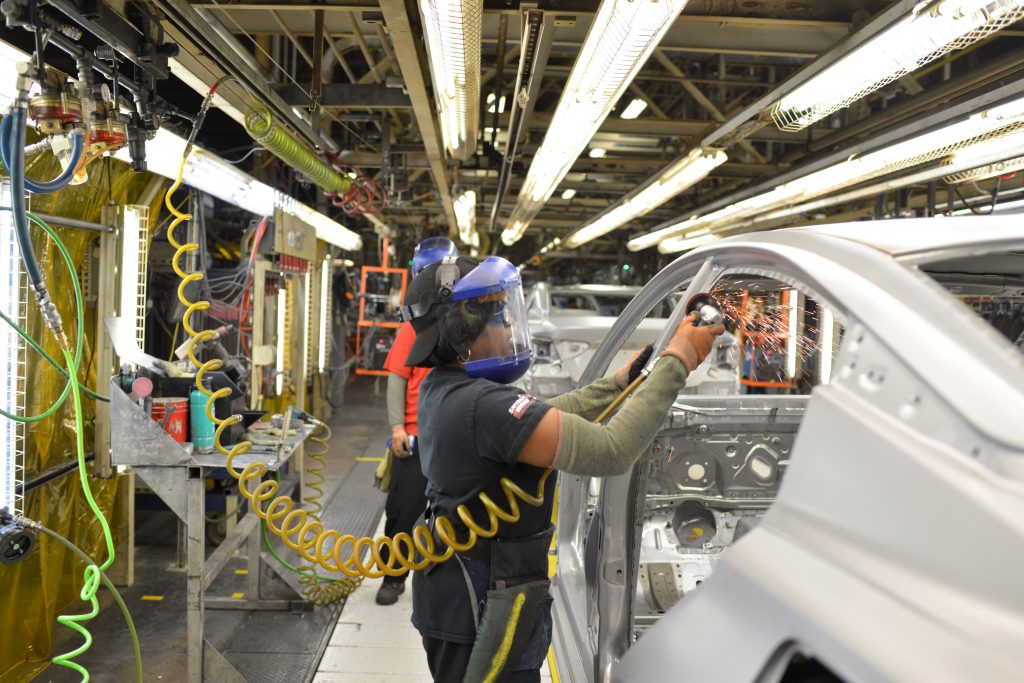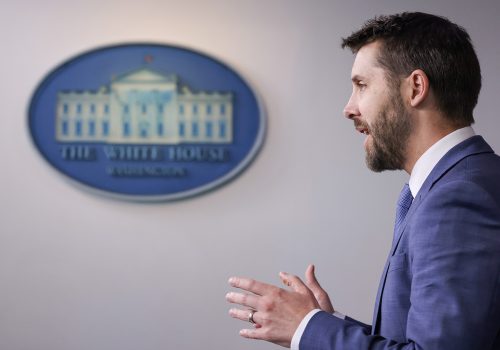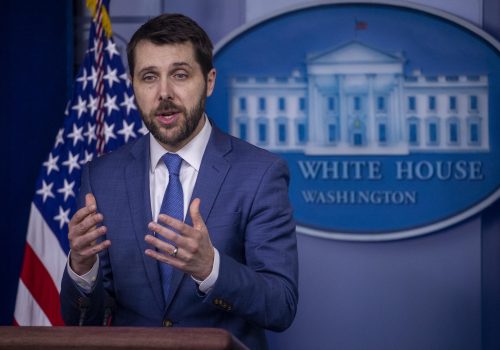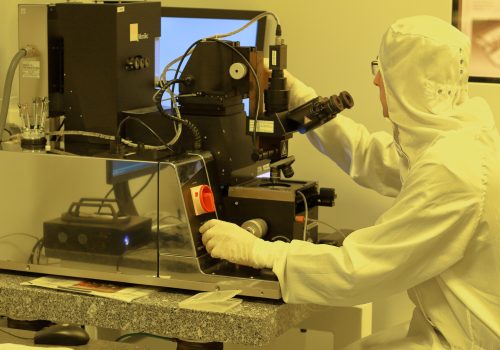It’s an idea that dates back to the nation’s early decades—one largely abandoned after World War II but made urgent again by the COVID-19 pandemic and its attendant economic upheavals: The United States is launching an industrial policy.
Brian Deese, the director of the National Economic Council, laid out the new vision from Joe Biden’s White House at an Atlantic Council Front Page event Wednesday hosted by the GeoEconomics Center. The strategy rests on what he referred to as “five core pillars: Supply-chain resilience, targeted public investment, public procurement, climate resilience, and equity.”
The policy pulls together existing plans such as the United States Innovation and Competition Act in Congress and a hotly debated Biden administration infrastructure proposal within a broader framework and a long-range plan over the next decade. Deese said the proposals would involve spending about 1 percent of gross domestic product per year, “the minimum necessary to actually make a capital investment that could propel our economy forward.”
In a speech and conversation with Rana Foroohar, global business columnist and associate editor for the Financial Times, Deese framed the policy as crucial for domestic aims as well as US competition with China, which has utilized a heavy government hand to become an industrial power. “Strategic public investments to shelter and grow champion industries is a reality of the twenty-first-century economy,” Deese said. “We cannot ignore or wish this away.”
Here are some key takeaways from the event:
Bringing in allies
- Biden’s trip to Europe last week aimed to strengthen ties with the United States’ closest allies and even included a major announcement of a détente in a protracted trade dispute between US airplane maker Boeing and its French rival Airbus.
- A major “Buy American” push has the potential to alienate allies, but Deese sought to allay those concerns. “We need to work with allies and partners,” he said. “This is an important point. It’s neither feasible nor advisable for us to reshore all of our supply chains. Resilience does not mean closing [ourselves] to the rest of the world. Partnerships with our allies that promote more stable access to key inputs while improving environmental sustainability and workers’ rights is essential.”
- Deese also noted that US economic strength helps power the global economy—a dynamic that has been evident during the recent post-pandemic recovery. “The increase in growth as a result of our fiscal policies is actually having positive spillovers for the rest of the world,” Deese said. “That is a core way that we can help support a global recovery, help support the values that we’re trying to drive with respect to our foreign policy, and put us in a position of strength when we are interacting with competitors on issues where we disagree and where we’re going to have competition.”
New view of government
- Deese’s vision for an activist government role in the economy is one that has gained more currency in both major US political parties in recent years as American manufacturing has dwindled, with a 35 percent decline in manufacturing jobs from 1979 to 2019.
- “Markets on their own will not make investments in technologies and in infrastructure that benefit an entire industry,” Deese said. “And these are not your typical market failures. These failures require a different role for government, one where public [research and development] lays a foundation for breakthrough technologies, but the government also looks to pull forward the deployment and the dispersion of innovation, works with the private sector to overcome those barriers of information and communication that have stymied prior efforts.”
- The vision doesn’t always mean passing new laws. Deese pointed out that “Buy American” requirements for US government procurement have been on the books for decades but are not used effectively. “And the president is committed to actually delivering on the laws as they exist and making sure that that is the case,” Deese said.
Spreading the cash around
- The “hollowing out of our country’s industrial base,” as Deese put it, has had profound economic and social consequences in recent decades, as coastal cities thrive while much of the industrial heartland suffers.
- Deese said the Biden administration will prioritize racial and gender equity—in part through investing in Historically Black Colleges and Universities and Minority-Serving Institutions—as well as geographic diversity. “We know that by investing in all of America, particularly in those regions that have suffered from decades of deindustrialization, we can avoid further geographic entrenchment and polarization and unlock more of our innovative capability,” Deese said.
- Deese added: “This is what it is going to take to build an economy from the bottom up and the middle out.”
What about inflation?
- Asked about growing indicators of inflation, Deese said the White House plans to fully offset the costs of its industrial policy, so “that really is not the issue.” The industrial plan is “not about overheating the economy, but actually providing the core elements that are going to allow us to sustain growth across time.”
- As for what’s happening now, Deese downplayed inflationary concerns. “We’re looking at the implications of an economy that comes out of a policy-induced coma and comes roaring back, in part because demand is so strong because of the success of the ongoing vaccination campaign,” Deese said.
Daniel Malloy is the deputy managing editor at the Atlantic Council.
Watch the full event
Further reading
Image: Line workers smooth out the metal along the door frames on the flex line at Nissan Motor Co's automobile manufacturing plant in Smyrna, Tennessee, on August 23, 2018. Photo by William DeShazer/Reuters.




